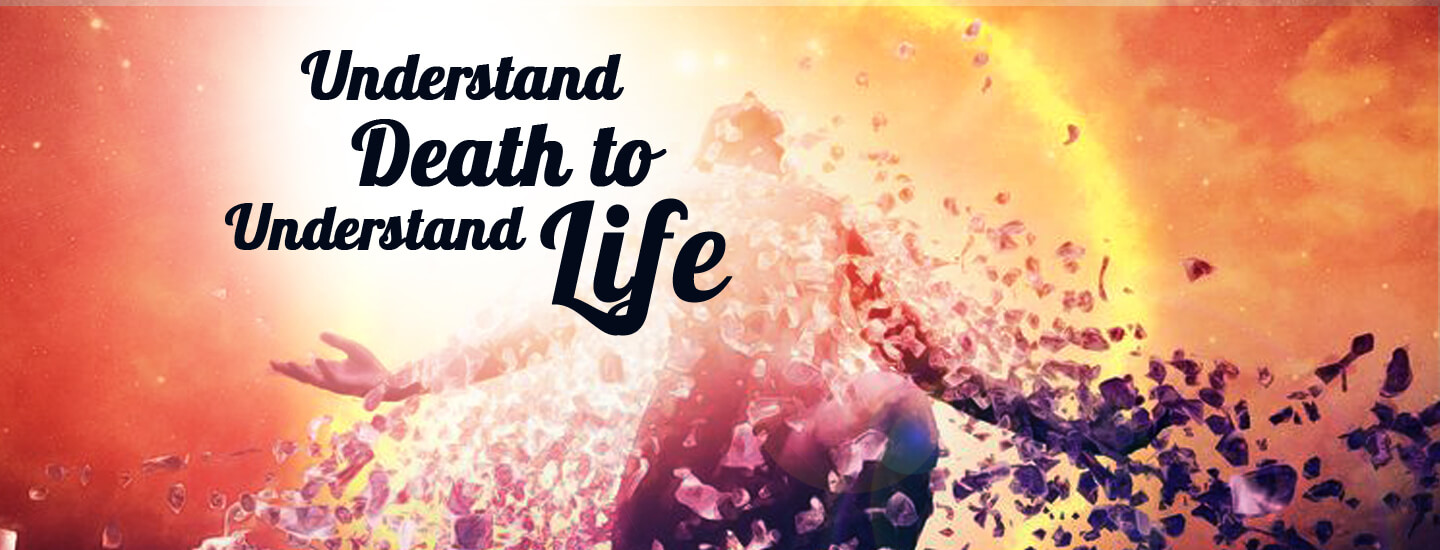In life, we must train our mind for several events – both good and bad. For instance, our preparation for an exam determines whether we will pass that exam with flying colors or whether we will end up failing and taking the exam again. While it is sometimes possible to pass the exams on a physical plane even with a bit of luck and fluke, it is not applicable for exams of the spiritual plane.
The Supreme consciousness, which we know as God, has created several tests for us throughout our journey of life and a very crucial exam at the end of our life – DEATH – the final exam that takes place at the absolute end of our lifetime. But when our Prana (vital life force or breath known as the soul by westerners) is about to leave our body, how can we train our mind to even attempt this subtle exam?
The exam of death in itself is quite simple. In fact, there is just one question that we must answer – ‘what is our final thought before our Prana is about to depart our body?’ The mind is a potpourri of many things. It is so versatile and fluctuating by nature that it can think of a hundred things per minute. But, which thought would it pick at the exact moment that we are about to leave our mortal coil? It is a big gamble to let the mind pick a thought at the last hour. How can we control our mind’s selection of our final thought?
The seers of truth, great Yogis and Guru’s and even great incarnations of the Supreme have said that whatever thoughts we have at the minute before our death becomes our reality after death. Our last sincere wishes are always fulfilled by the divine cosmic energy.
Krishna tells Arjuna in the battlefield of Kurukshetra: “O Arjuna! One who gives up his body remembering an idea verily becomes the object of that idea by becoming constantly absorbed in that thought.” [Bhagavad Gita, Chapter 8, Verse 6]
So, we must train our mind to think of something that matters the most to us at the time of our death. For an average man, this thought might be about remembering something pleasing to his senses, materialistic, egoistic and temporary but for those who seek the truth (enlightenment/Moksha), it is only the divine (Supreme Self) that they think of.
Krishna counts to Arjuna: “There is no doubt that one who remembers me at the moment of death, elevates to my nature upon leaving the body.” [Bhagavad Gita, Chapter 8, Verse 5]. This is asserted by even scriptures like the Garuda Purana, which detail the journey of the individual consciousness to realms beyond this world, upon its separation from the physical body.
Just like it is impossible for a student to pass an exam who never touches his book and studies only the night before the exam, without cultivating the habit of thinking of God and having pure thoughts on a daily basis, one certainly will struggle to bring the mind to one-pointed focus on divine thoughts when the body is subjected to excruciating pain and when the capacity to breathe is diminishing.
Yogis can use their supernatural powers and predict their death well in advance, and can willfully discard their bodies by fixing their mind upon God but for common people, it is extremely difficult; firstly, they cannot predict when death will come knocking at the door and secondly, they are also vulnerable as they come under the clutches of human emotions such as, pain, fear, hatred, guilt and worry. These emotions only get accentuated at the time of death due to the very fear of death, which in turn is due to the fear of the unknown. It’s like driving your car in a route, which you are not sure about, with many zigzags and dead ends to navigate.
Until we fear death, we cannot face it with courage and accept it as a stepping-stone to liberation. The fear prevents us from realizing that death in the physical plane means birth in the spiritual plane and vice versa. The fear of death is what makes us become attached to our body and cling on to things of the physical world that are all perishable, no matter how rich and fulfilling they seem initially.
This is why sages have emphasized that we must remember God in our day-to-day life so that it will be easier for us to remember Him while departing from the body. One who remembers God and has pristine thoughts everyday will naturally carry these thoughts even when lying on his deathbed. Observing and regulating our breath can help us easily attain the focus on God. Nobody prompts us to go brush our teeth after we wake up in the morning, similarly, nobody would need to prompt us to think of God when we die, once we cultivate this thought as a perpetual habit.
Through constant practice, the mind can be trained to identify itself with its real nature of ‘pure bliss consciousness’ and to erase the thousand and one meaningless thoughts that it constantly produces and brings forth to the surface. The Vasanas (mental impressions) are not just from this life but are also from previous lifetimes that may obstruct our spiritual growth depending on how negative they are. Training the mind requires practice and patience. We are capable of becoming that which we constantly think of. If we view ourselves, as a part and parcel of the supreme universal energy then there is no doubt that we will become that. If we harbor negative thoughts and fear at the time of our death, we will inevitably face the negative consequences of those thoughts, including losing a great opportunity to attain eternal freedom and bliss.
With focus on the truth (God), it wouldn’t matter whether we are destined with a peaceful death or a difficult one, whether we die today, tomorrow or in a few years, whether our loved ones surround us in our deathbed or whether we die in isolation, because we will not fear the inescapable death and will be in the safe hands of the Supreme.
How can death overwhelm one whose mind has been trained to understand that death is but a mere illusion, a passing phase of life and a golden opportunity realizes his Supreme Self?


